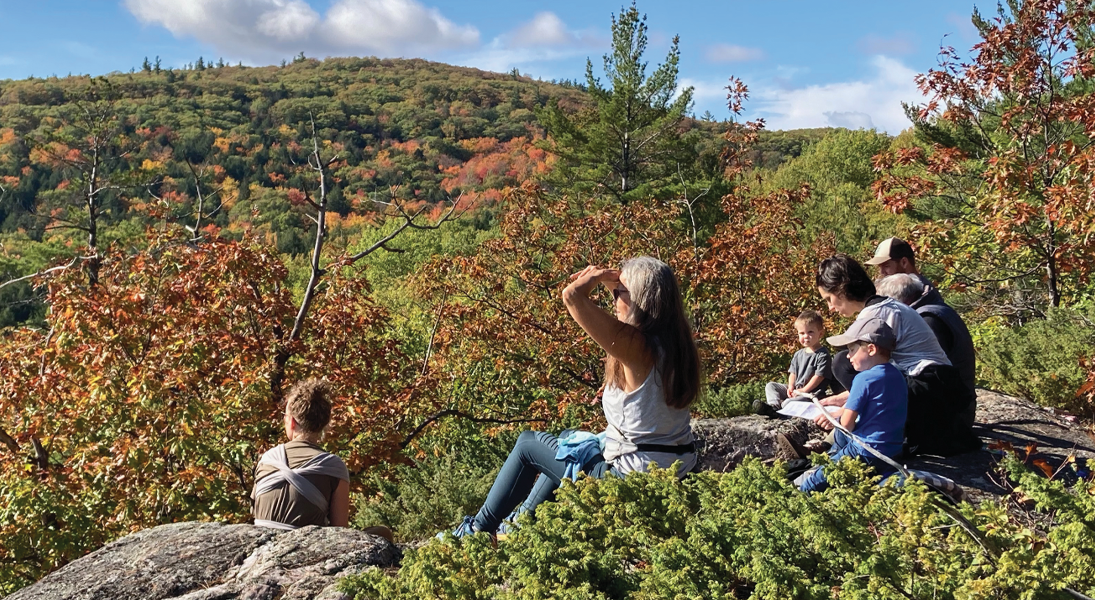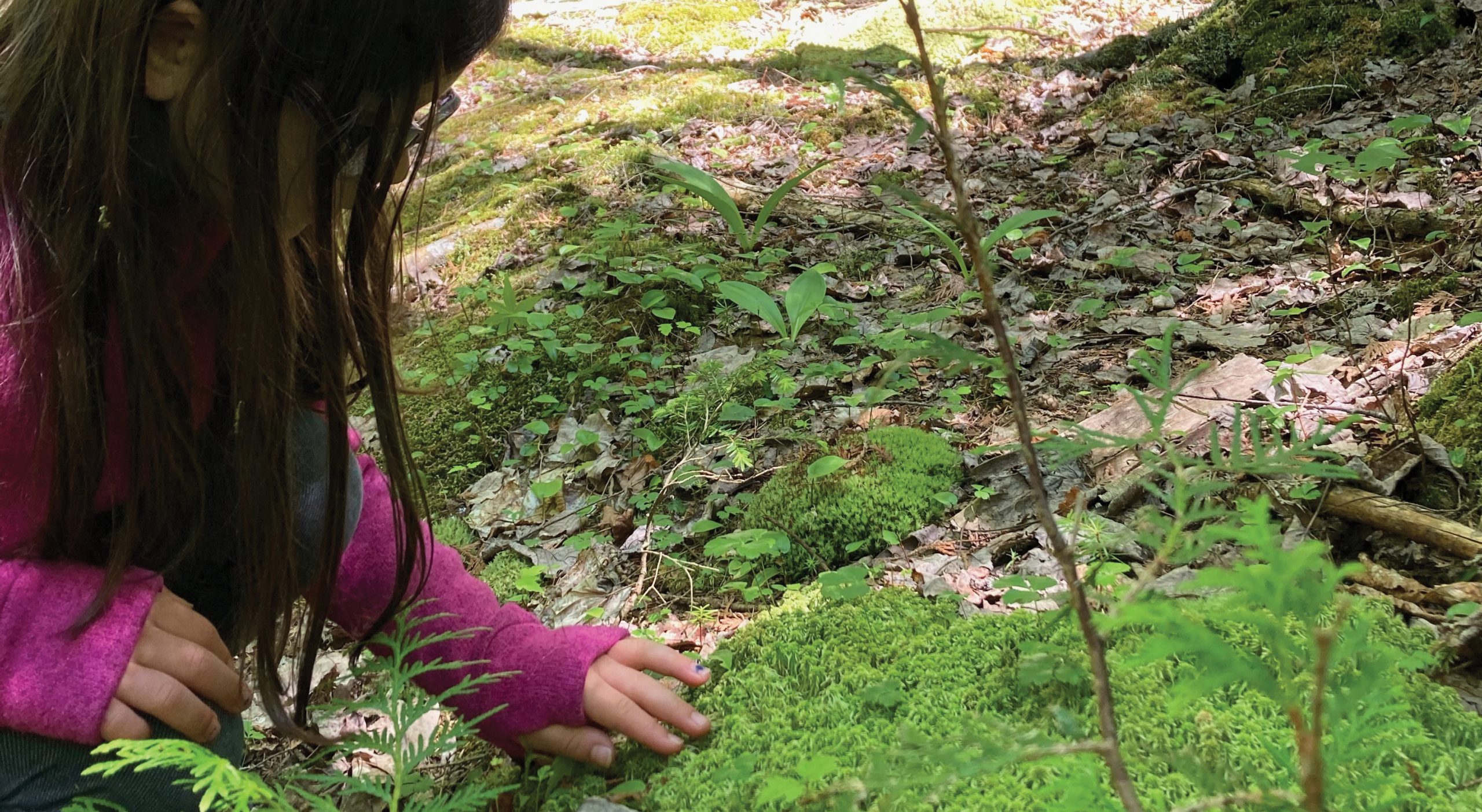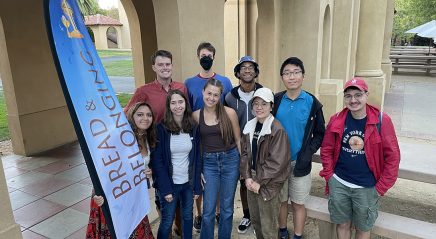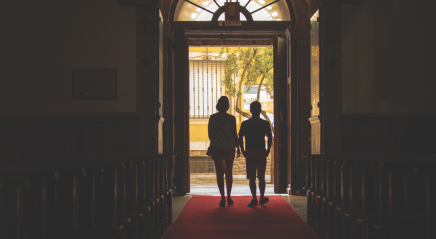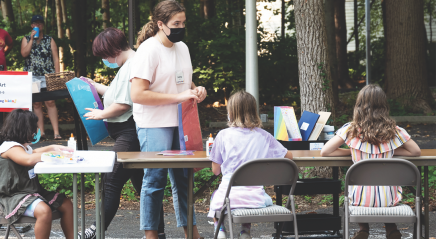Located in the town of Marquette in Michigan’s Upper Peninsula, UP Wild Church is among the newest ministries in the growing movement of “wild” outdoor worship communities. The church holds its worship and prayer services outdoors and hosts nature walks, wilderness reflection and field trips to explore God’s creation amid the scenic beauty of the peninsula.
An ecumenical ministry of the Northern Great Lakes Synod and the Episcopal Diocese of Northern Michigan, UP Wild Church was started in 2019 to attract younger people and those disenchanted with traditional church, and to foster a deeper spiritual connection with God outdoors.
“It’s a church outside the box,” said Lanni Lantto, mission developer for the church. A lay minister and former fashion designer, she had grown up in the area and wanted to return there from upstate New York, where she and her husband ran a spiritual retreat house.
Lantto is passionate about the outdoors and brought to UP Wild Church a wide social media network, a heart for social issues, relationships with local residents, history with the local Lutheran and Roman Catholic communities, and boundless energy.
Jim Duehring, assistant to the bishop of the Northern Great Lakes Synod and a director for evangelical mission, supported Lantto in starting the ministry. “Knowing that Lanni has both life experiences and passions for doing this work well—and the fact that she is a layperson and not a pastor—provides a model for the creative ways that the church can be church in today’s day and age,” he said. “One doesn’t have to be a pastor to be a good mission developer.”
Lantto said she dreamed up UP Wild Church while watching her son play in a park and talking to her high school friend Lydia Bucklin, canon of the ordinary for the local Episcopal diocese. Bucklin sought ways to partner with the ELCA in reaching younger Christians and those who had stopped attending church.
“We’re always looking for ways to connect to people and affirm that God is still creating in our world.”
“We’re a church for ‘dones,’” Lantto said with a smile. “People who are done going to church.” This sometimes happens, she said, among people who felt guilty or ashamed or were labeled sinners while growing up in the church.
“I’ve spoken to a lot of people who said that church didn’t give them the ability to relate to the Christian message in everyday life,” she added. “Church was no longer a place they felt comfortable bringing their kids.” Yet they still wanted a spiritual life.
UP Wild Church was formed as a collaborative nonprofit between the ELCA and the Episcopal Church, which acts as financial agent for the ministry. As a synod-authorized worshiping community, the church exemplifies the ELCA congregational vitality team’s vision of training mission developers to launch startup churches that are agile, creative and culturally in sync with their geographic areas.
“The traditional church will remain,” Duehring said, “but we’re always looking for ways to connect to people and affirm that God is still creating in our world.”
With 15 to 25 regular members, UP Wild holds services on the first Sunday of the month, with Lantto providing prayers and reflections and encouraging worshipers to explore the outdoors. A recent gathering, for example, focused on how the Beatitudes relate to daily life. Other activities have included a “Wonder and Ponder” walk, a mobile prayer group and field trips to local operations supporting environmental sustainability (e.g., a thrift store).
Lantto assumed that most attendees would be younger people, so she was surprised by the new church’s cross-generational spirit, which appeals to middle-aged and older adults.
“What we’re seeing is that people are coming to UP Wild who already have a church home and resonate with being outdoors and appreciating nature and the spirituality of creation care,” Duehring said.
Lantto added that pastors often come to experience the outdoors together. “People connect to the outdoors in so many different ways,” she said. “What draws us closer to God outdoors is that God created it. It’s a living cathedral. When we go outside, we step into God’s world, full of mystery and wonder and awe. When we feel this, we have a connection to something higher than ourselves, and we feel loved. I find that people feel more at peace, loved and connected outdoors. There’s healing there.”
A spiritual practice
There are approximately 100 wild churches in the United States and more around the world that are returning to nature as a spiritual practice. Over the past few years these churches have formed the Wild Church network to support startups.
“In this age of mass extinctions, we feel compelled by the love of Christ to invite people into intimate relationship with some of the most vulnerable victims of our destructive culture: the land, waters, and creatures with whom we share our homes,” reads the network’s site. “New Wild Churches are emerging all the time, offering invitations to reconnect with the natural world. As kin. As sacred. As beloved co-participants in a larger story of grace and inter-being. Wild Church gatherings offer opportunities for contemplation, grief and praise, movement and song, solo wandering and wondering, advocacy, ecological restoration and activism on behalf of and in collaboration with the beloved others in our watersheds.”
UP Wild Church is sustained by ELCA and Episcopal grants, donations and member gifts. Its five-year expansion plan includes starting a branch in the Rapid River area.
“This is one model in which churches need to explore the term ‘holy experiments,’ trying new ways to be church, connecting with people and seeing how God is already present in people’s lives.”
“This is one model in which churches need to explore the term ‘holy experiments,’ trying new ways to be church, connecting with people and seeing how God is already present in people’s lives,” Duehring said. “Instead of insisting that the only way we can be a Christian community is to use the model used for generations, there’s more than one way to be a community. Being outside the walls is a metaphor for the way of Christ. We gather and we scatter.
“This model wasn’t meant for every community in our territory to adopt, but perhaps even traditional churches might embrace some aspect of the model,” he said. “Traditional churches will still be churches, but many are offering walks and hikes, reflective readings, prayer petitions, and sharing the eucharist outdoors.”
Lantto sums it up best: “Where has the reverence, the wonder and the awe of the natural world gone? Have we built too many walls over, through and around ourselves so we can no longer see or feel the mystery of God who creates all things?
This ministry is supported by Mission Support, your offerings that are shared with your congregation, synod and the churchwide organization (livinglutheran.org/sofia).



